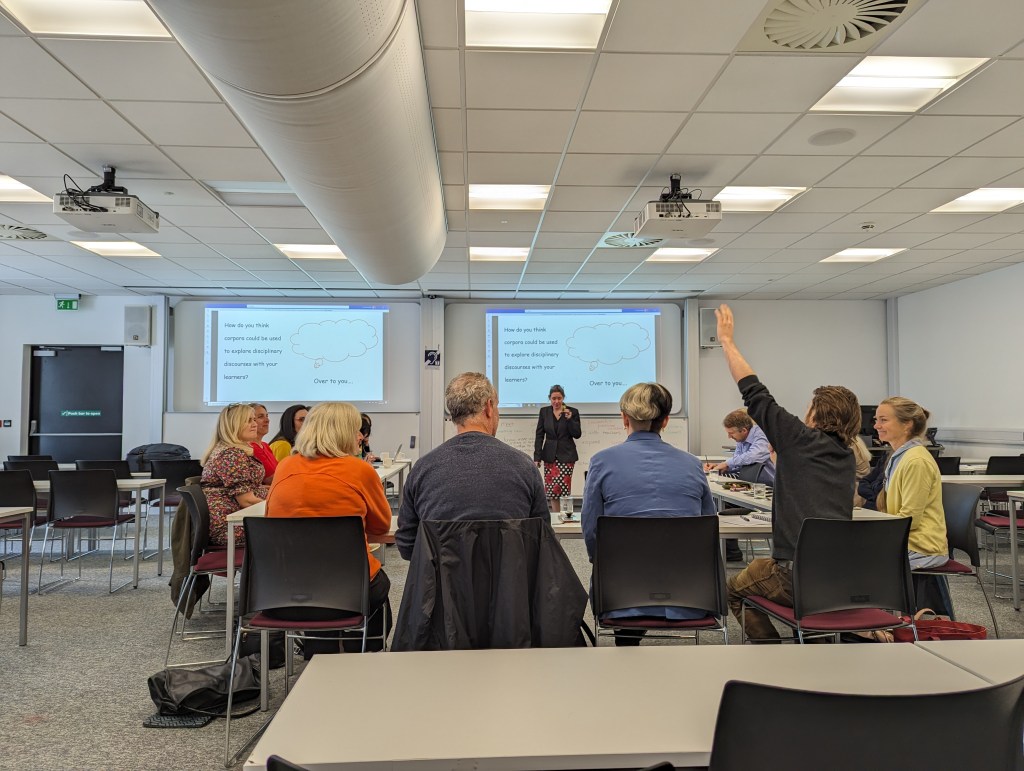British Academic Written English Secondary School Corpus
Transforming literacy teaching through innovative genre-based and corpus-based pedagogy for GCSE and A level students
What is disciplinary literacy?
Disciplinary literacy is grounded on the basis that those who engage in specific disciplines, such as history, geography, or biology, use sets of tools, structures, and language unique to their discipline in order to create and communicate ideas (Shanahan & Shanahan, 2012). It understands that knowledge on how to practice and communicate within a discipline is subject-specific. As such, engaging in disciplinary literacy becomes key to ensure that learners are able not only to read and communicate their intended messages, but to do so in a way that resembles that of experts.
Shanahan, T., and Shanahan, C., 2012. What Is Disciplinary Literacy and Why Does It Matter? Topics in Language Disorders, 32(1), pp. 7-18
What is genre?
Genres are specific categories of text, whether written, spoken or otherwise. Shaped by their target audience and purpose, different genres call for a variety of themes, organisational structures, and vocabulary choices to convey their intended meanings in a context-appropriate way. Since no two genres are the same, a thorough understanding of the distinct features of a given genre is key to ensuring the successful production of a text. This is true for all genres across all disciplines and levels of proficiency.
What is corpus?
A corpus (plural: corpora) is a collection of authentic texts, whether written, spoken or otherwise. These are often gathered with the intention to inform how a particular variety of language is naturally used in a context, such as scientific texts, a language classroom, or students’ academic essays. By sampling authentic examples of how these texts are produced, working with corpora enables us to identify patterns of language use.
Tognini-Bonelli, E., 2001. Corpus linguistics at work. Amsterdam: John Benjamins
Why?
“Developing disciplinary literacy has important implications for students’ achievement, as it allows them to become better problem solvers and demonstrate more transfer of skills and knowledge outside the school setting” (Betts et al., p. 204).
Betts, A. L., Fabienke, N., and Farber, M., 2021. The Quest for Learning: Promoting Engagement and Disciplinary Literacy Through Game-Based Quests. In: L. Haas and J. Tussey, eds. Disciplinary Literacy Connections to Popular Culture in K-12 Settings. Hershey, Pennsylvania: IGI Global, pp. 203-230.
What do teachers say about it?





Independence
“[Students] not only produce texts independently in the focused genre by the end of this cycle but they’re also given the tools to assess what they’ve done so they can be self-critical, and they can give themselves advice about how to improve which is great!”
teacher of Science





Sentence Functions
“[Students] have got more understanding of what each part of the sentence, the clause… functions to do… we are talking about the purpose of the language, and trying to structure that academic language into their writing”
Teacher of PE





Elevates the Subject
Teaching [language] explicitly really brings [students] to the level that you would like them to do without making any blocks to your current practice. It doesn’t slow the lesson down, it’s not adding things on top, it comes with it. It carries the subject content at the same time.
Teacher of Pe
The Project in numbers
100%
satisfied customers
370
households per month
5
awards won
23
experts working

-
Hello World!
Hi there. Thank you for visiting our website. It is currently under construction as the BAWESS project gets underway so please check back soon for new content and updates.




